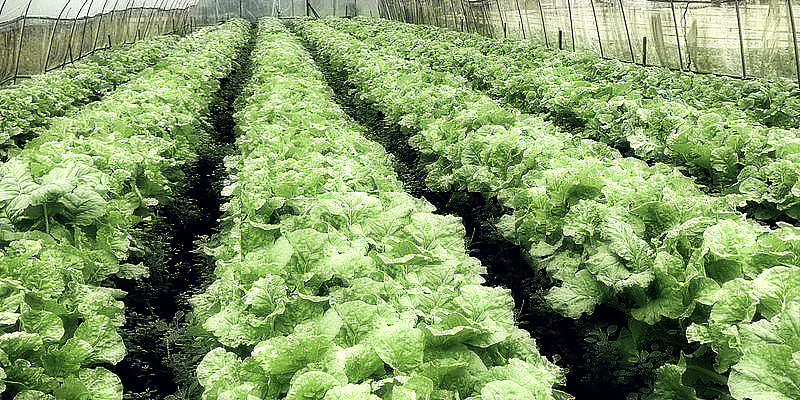
Malaysia is facing a market vegetable crisis. Rapidly rising prices, shortages in supply, pesticide ridden and often old by the time vegetables reach the market.
Solutions are desperately needed.
It is not as if the government hasn’t been aware for decades.
In 2008, we faced the so called “world food shortage.” Here in Malaysia, little was done about it.
Now in 2023, Malaysia is facing critical shortages of market vegetables, with prices rapidly shooting up some 15-50 percent.
Agriculture and food security minister Mohamad Sabu said in Kota Kinabalu last week that “the government, through various ministries, agencies, organizations and the public, needs to join hands to realize their responsibility (to preserve food security). The symbiosis and synergy of solid strategic planning needs to be adopted in the planning of every government and private entity.”
The immediate solution espoused by the minister is to create a system that provides real time information about food shortages in the country, monitor the types of vegetables grown, and their output and location.
“Through this system, the government can estimate and make early preparations in case of emergencies.”
An alternative plan
Malaysia has one of the most regulated food and produce sectors in the world. Central planning and regulation have never led to healthy and balanced markets in the history of modern economics.
If there is ever going to be a buoyant market garden sector, it must be deregulated to allow the “invisible hand” of the market determine the level of production, volume, and prices of vegetables within the sector.
In addition, controls over land, where budding entrepreneurs want to undertake market gardening start-ups, must be facilitated. Too many potential farmers can’t get access to land.
For too long government authorities have promoted and assisted large companies enter the sector at the expense of sole proprietors.
Market gardening should be entrepreneurial
Farming has been treated as a production orientated activity, rather than a business activity. Its here the government must facilitate not just logistical supply chains, but value chains.
Smallholders must be taught how to run stalls as businesses, plan production, so cash flow is even across the year. They can supplement their product range by taking other products from other growers.
These stalls don’t need to be physical. They can be online shops, where orders are send to customers by couriers.
Many market gardeners in Southern Thailand now obtain their total sales through online shops. It works.
Another problem is the age of farmers.
Every year, the average age of Malaysian smallholders goes up by one.
Smallholders are an ageing population. There are few incentives for the young to take up farming as a vocation and career.
The smallholder market garden community can be supported by farmer savings cooperatives, practiced in many other countries. Smallholders can borrow to plant and pay back upon harvest and sale.
Provide training
Market gardening is not just planting seeds and watering them.
There are so many technical aspects to market gardening. Its both an art and science.
Agricultural colleges need to attract the young and turn them into competent farmers and great entrepreneurs. They need the whole range of skills to enable them to farm, market, and sell their produce in an effective and profitable manner.
After they graduate, they need mentors to nurture them through their start-ups.
There needs to be an expansion of agricultural colleges across the country. Visit the existing ones, and the good work they are doing can be seen.
Bring market gardening to the community
Market gardening requires decentralization across the country, growing what is most suitable for the physical conditions, within a mixed farming, rather than monoculture format.
Organic farming can provide cheaper inputs than conventional farming, if practiced within a community.
Fertilizers can be produced through the gotong–royong model, with the fertilizers shared between the participants. This creates some economy of scale and sense of community, at the same time.
The smallholder market garden community can be supported by farmer savings cooperatives, practiced in many other countries. Smallholders can borrow to plant and pay back upon harvest and sale.
Market gardening must also be developed within urban areas. The municipal market gardening programs in some areas can be expanded across urban Malaysia.
Families can apply for small plots, and farm alongside other plots. This will help develop a sense of community, where the retired who have time can operate and care for.
High density urban farming
Industry 4.0 can play a role in large urban vertical farms intended for commercial production in high density population areas. These should be run for profit companies, owned and operated by agrotechpreneurs.
This is a rough and “off the cuff” plan for improving Malaysia’s market vegetable food security.
Malaysia needs action, rather than more strategic planning, and quickly too.

(Murray Hunter has been involved in Asia-Pacific business for the last 40 years as an entrepreneur, consultant, academic and researcher. He was an associate professor at Universiti Malaysia Perlis.)
ADVERTISEMENT
ADVERTISEMENT








































